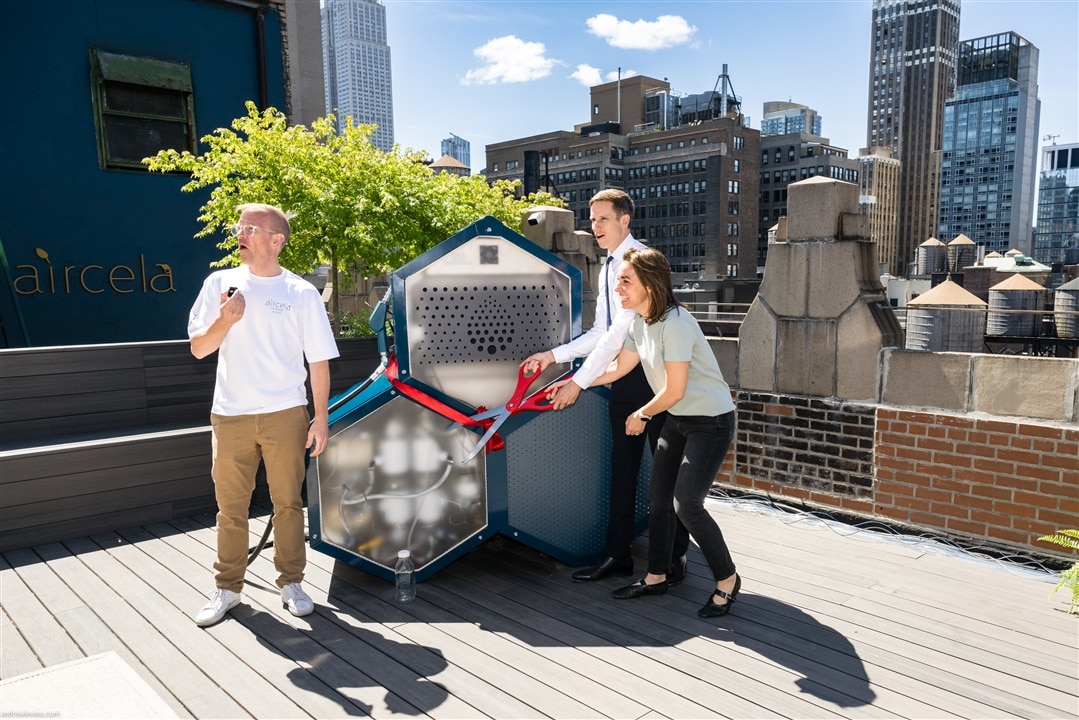
Aircela demonstrated its compact machine that turns CO2 into gasoline for vehicle use. (Image Credit: Aircela)
New York-based fuels company Aircela built a compact machine capable of collecting carbon dioxide, converting it into clean, usable gasoline for vehicles without relying on fossil fuels. The refrigerator-sized device produces gas through a combination of direct air capture (DAC) and fuel synthesis, utilizing air, water, and renewable energy to accomplish this.
“We didn’t build a prototype. We built a working machine,” said Eric Dahlgren, co-founder and CEO of Aircela. “We want people to walk away knowing this isn’t too good to be true—it actually works.”
Last month, Aircela demonstrated their DAC device on a roof in New York with an audience present. The device produced gasoline on-site and in real-time. The startup says the fuel doesn’t contain any heavy metals, sulfur, and ethanol. It’s also compatible with modern car engines and infrastructure.

Aircela’s device successfully converted the air into gasoline. (Image Credit: Aircela)
The machine works much like a direct carbon capture facility unit, capturing CO2 from the atmosphere and turning it into gasoline. Aircela’s device has three large blue units. One is placed on the top, while the other two sit side-by-side on the bottom. These parts are responsible for air capture, water electrolysis, and fuel synthesis.
It uses a water-based solution containing potassium hydroxide to collect CO2 from the air. Air is drawn through a chamber, where it comes into contact with the liquid sorbent, allowing the potassium hydroxide to react, absorbing carbon dioxide. Electricity from renewable sources separates the water into hydrogen and oxygen. While the machine keeps the hydrogen for fuel synthesis, it releases the oxygen. The sorbent is also regenerated for reuse.
Both the hydrogen and collected CO2 are mixed in a chemical reactor and turned into methanol and then gasoline via a two-step process called methanol-to-gasoline (MTG). The fuel remains stored in the device until it’s dispensed via a gas nozzle at the back.
Overall, the device captures up to ten kg of carbon dioxide per day, producing a gallon of gasoline. It stores 17 gallons of fuel in the tank. However, with its current design and configuration, the machine won’t fill up a 20-gallon car fuel tank with gas overnight. Although the company didn’t name a price for the device, it aims to make it as affordable as possible. If the machine is mass-produced, costs can be driven down over time.
Aircela hopes to begin manufacturing by the fall, aiming to sell the product to commercial, industrial, and residential customers. “We truly believe that our approach is the fastest way to bring carbon-neutral fuels to as many people as possible, to as many places as possible, as soon as possible,” Dahlgren said.
Have a story tip? Message me at: http://twitter.com/Cabe_Atwell
